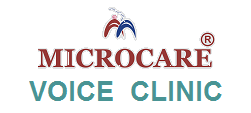“Sip Smart: Discover the Impact of Alcohol and Caffeine on Your Voice,” brings attention to the effects of alcohol and caffeine consumption on vocal health. Understanding how these substances can impact your voice is crucial for maintaining optimal vocal performance.
Firstly, let’s discuss alcohol. While it may seem harmless, excessive alcohol consumption can have detrimental effects on your vocal cords. Alcohol is a diuretic, meaning it increases urination and can lead to dehydration. When your body lacks proper hydration, your vocal cords can become dry, making them less flexible and more prone to irritation. Dry vocal cords can result in a raspy or hoarse voice, difficulty reaching certain pitches, and decreased vocal control.
Additionally, alcohol can cause inflammation and swelling of the vocal cords. This swelling further impedes their ability to vibrate freely and produce a clear and resonant voice. As a result, your vocal range may be limited, and your voice may lack the smoothness and precision it typically possesses. These effects are often temporary, but excessive and prolonged alcohol consumption can lead to more severe and long-lasting vocal damage.
Similarly, caffeine, found in beverages like coffee, tea, and energy drinks, can also have negative effects on your voice. Caffeine acts as a diuretic, causing increased urine production and potentially contributing to dehydration. When your body is dehydrated, your vocal cords can become dry, making them less pliable and more susceptible to vocal strain and fatigue. Dry vocal cords can result in a rough or scratchy voice, reduced vocal range, and difficulties in vocal projection.
It’s worth noting that while moderate consumption of alcohol and caffeine may not have a significant impact on vocal health for everyone, individuals vary in their sensitivity to these substances. Some people may experience more pronounced effects even with lower amounts of consumption. It’s important to listen to your body and pay attention to how alcohol and caffeine affect your own voice.
To protect your voice, it’s essential to practice moderation and mindfulness when it comes to alcohol and caffeine consumption. Here are some tips to help you sip smart:
- Stay hydrated: Drink plenty of water throughout the day to keep your body and vocal cords well-hydrated. This helps counteract the dehydrating effects of alcohol and caffeine.
- Limit alcohol intake: If you choose to consume alcohol, do so in moderation. Be aware of how alcohol affects your voice and consider alternating alcoholic beverages with non-alcoholic ones to stay hydrated.
- Monitor caffeine intake: While caffeine can provide a temporary boost of energy, be mindful of your overall consumption. Consider opting for decaffeinated beverages or herbal teas that are gentler on the vocal cords.
- Balance with water: If you do indulge in caffeinated or alcoholic beverages, balance them with adequate water intake. Drink water before, during, and after consuming these substances to help maintain hydration.
- Know your limits: Everyone has different thresholds for alcohol and caffeine tolerance. Pay attention to how your voice responds and make adjustments accordingly. If you notice negative effects, consider reducing your intake or seeking alternatives.
By sipping smart and being mindful of your alcohol and caffeine consumption, you can support the health and longevity of your voice. Remember, hydration is key, so prioritize water intake to counteract the potential dehydrating effects of these substances. Your voice is a valuable instrument, and taking care of it by making informed choices about what you consume will contribute to its overall health and longevity.
 Microcare Voice Clinic in Hyderabad
Microcare Voice Clinic in Hyderabad
